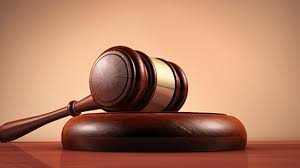$100 Website Offer
Get your personal website + domain for just $100.
Limited Time Offer!
Claim Your Website NowEnsuring access to justice

Source- thehindu.com
The justice system in any democracy is set up, under the Constitution to serve the public without “fear or favour, affection or ill-will” as far as judges are concerned. Yet the protagonists, as far as India is concerned, in operating the system have stopped that very access — judges through lack of prescience, and many lawyers through their dishonesty in many forms.
Revisiting judges’ advice
At an informal meeting, all of the then sitting judges of the Supreme Court (including myself) advised the then Chief Justice of India to decide against the request of the then Central government to sit in other places in the country under Article 130 of the Constitution. The reason we (judges) decided against it was because we felt that the authority of the Supreme Court would get diluted. The reasoning, in retrospect, was fallacious. Many High Courts in this country have different Benches for meting out justice without ‘justice’ being ‘diluted’. For example, the Bombay High Court has four Benches — in Mumbai, Aurangabad, Nagpur and Panaji (Goa) — and the quality of its decisions or status have certainly not been diluted thereby.
The number of Benches depends on the size of the State, the idea being to facilitate easier access to justice. The direct consequence of the wrong decision has been three-fold. First, the Supreme Court sitting only in Delhi has resulted in excellent lawyers from other High Courts not appearing before the Supreme Court, possibly because it casts too large a monetary burden on their clients, many of whom are impoverished. Second, all lawyers, whatever their calibre or competence, who happen to be in Delhi now appear in the Supreme Court. Some of the good lawyers who were able to leave lucrative practices in the High Courts have settled down in Delhi, but they have established a monopoly, and, as a result, charge unconscionable fees even from charitable concerns — sometimes even when they do not appear at the hearing. This is also true of litigating lawyers at all levels of the judicial system. The third fallout of the failure to act under Article 130 is that the Supreme Court in Delhi has been flooded with work and been reduced to a District Court instead of a Court of Final Appeal and Constitutional Court as envisaged under the Constitution.
Unethical lawyers
But the fault in actually denying access to justice to citizens is the fault of unethical lawyers alone. That lawyers are generally dishonest is a well-known fact. Lawyers are (frequently) humorously called liars, and because they are the middle-men between judges and the litigating public, they act like dishonest brokers. That is why William Shakespeare said, “The first thing we do, let’s kill all the lawyers” (Henry VI). This is a somewhat unfair condemnation of those lawyers who are persons of high principles.
In some cases, as soon as an award of victim compensation is made by any Legal Services Authority (LSA), a statutory body to render free legal services to the impoverished all over India, the lawyer gets in touch with the victim and somehow convinces him/her to file a writ petition before the High Court to show that without such writ petition the compensation will not be disbursed by the State LSA (SLSA). Ultimately when the amount of compensation is finally disbursed by the SLSA, the lawyer takes credit and shows that it was because of his noble initiative that the victim got the relief, and in exchange claims a hefty share in the compensation. Such lawyers effectively create a perception of rendering a benevolent service by not charging any fees so the victim could never suspect him/her of any malpractice. Incidentally, according to a study carried out by a research organisation, Vidhi, in the Delhi High Court, more than 70% of the delays in the disposal of cases are attributable to lawyers, a major reason being sometimes unjust pleas for adjournments.
The litigating public and lawyers (including women and students) — either because they do not trust the judicial system or they distrust lawyers in particular, or for whatever reason — write hundreds of letters to the Chief Justice of India and the Chief Justices and Justices of each High Court for relief. Some issues raised in these letters are administrative or statutory in nature. Apart from these letters, hundreds of letters are written to Chief Justices for relief on the judicial side. Given the huge workload before all judges, it is not possible to deal with all letter-appeals simultaneously on the statutory, administrative or judicial side, unless they are drawn specifically to the Justices’ attention. Unfortunately the disciplinary powers available to Bar Councils both in Delhi and in States are more often than not ineffective. Some are politically motivated and some States do not have disciplinary committees at all. The disciplinary jurisdiction over lawyers was originally with the courts. As far as the older High Courts are concerned, this is clear from the respective Letters Patents under which the courts were set up. This continued till the power was taken away by the Advocates Act, 1961. Significantly, the Law Minister at that time was Ashoke Sen, a well-known lawyer. The solution to the present situation is to give the disciplinary jurisdiction back to the courts and to repeal the Advocates Act, 1961.
The way forward
Therefore, to hound out the corrupt lawyers from the system at all levels so that justice may be truly rendered to the public, I have a few suggestions. First, the Supreme Court should reconsider setting up Benches in different States in keeping with the recommendations of the Law Commissions (125th Report and 229th Report). Second, the Bar Council of India should exercise its powers under the Advocates Act, 1961 more effectively. If not, the disciplinary jurisdiction must be returned to the judiciary as was the position prior to the Advocates Act, 1961 by repealing the 1961 Act. Third, lawyers should be made irrelevant by referring more cases to trained mediators, as the Supreme Court has done in the Ayodhya dispute.



